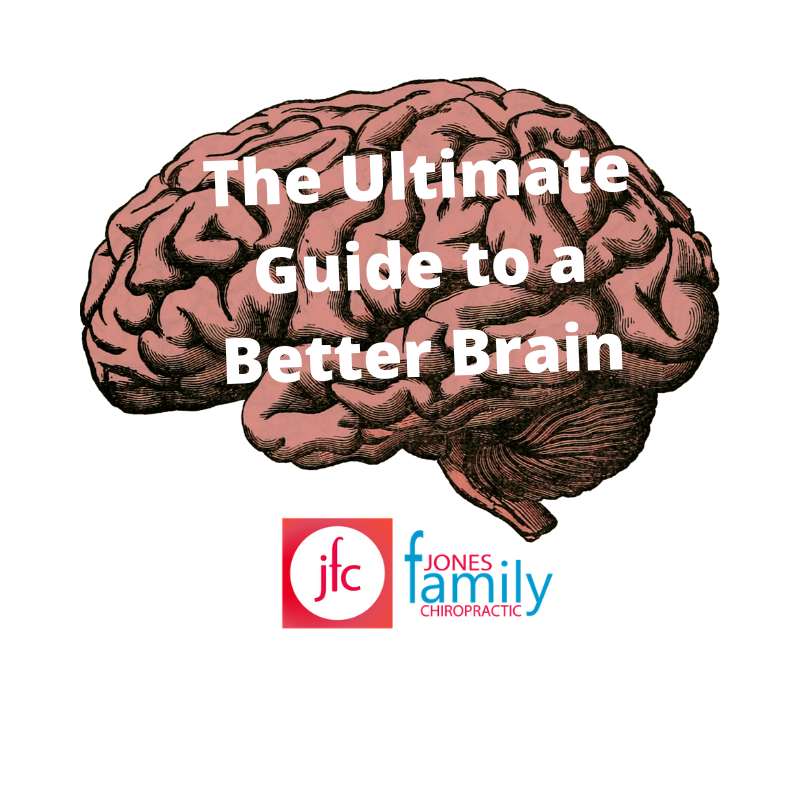What causes the brain to degenerate?
Imagine returning from work and being unable to remember your wife’s name. You wonder how many kids you have, and your dog looks so strange in your eyes. Sounds strange right? Yea, that’s what could happen when your brain begins to degenerate.
What is Neurodegeneration?
The word “neurodegenerative” is derived from two words “neuro”- brain, and “degenerative,”- breaking down. So, neurodegeneration is the progressive breakdown (both structure and function) of neurons present in the brain.
Basically, the brain is made up of about 86 million nerve cells, and these nerves connect with the brain in more than a trillion connections throughout the body. These connections make you who you are, and it determines functions like, remembering things you read, thinking about your family plans, moving around, and many more.
So, when there is a miscommunication between brain cells, it could cause the brain to degenerate which can lead to losing intellectual function as their brain gradually deteriorates, and the effect is evident in memory, speech, and spatial skills.
Like the example given above, when your home starts to feel like someone else’s place, it could be a sign of degenerative brain disease. The bad part is that this disease worsens over time as the neurons in the brain die.
Some common examples of neurodegenerative diseases that affect different parts of the brain include:
- Parkinson’s disease
- Huntington’s disease
- Alzheimer’s disease
- Frontotemporal dementia
- Amyotrophic lateral sclerosis
- Spinal muscular atrophy
- Lewy body disease
Parkinson’s disease causes impairment in movement. Alzheimer’s disease gradually causes memory loss in victims. Huntington’s disease deprives a sufferer of the ability to talk, walk, reason, and think, and this starts as early as in their mid-30s. Frontotemporal dementia leads to bewildering changes in a person’s behavior and thoughts.
In all of these diseases, the symptoms may start and last for as long as ten or twenty years until death. And many sufferers live a life of dependence, especially in their final years.
What causes the brain to degenerate?
Most of the neurodegenerative diseases are genetic, but sometimes, they can be as a result of a medical condition like:
- Stroke
- Alcoholism
- A tumor
Other causes include:
- Chemicals
- Toxins
- viruses
The degenerative brain disease can be life-threatening, depending on the type.
Symptoms of brain degeneration
There are many symptoms of brain degeneration, depending on the type of disease and what part of the brain is affected. However, some common symptoms include:
- Memory loss
- Confusion
- Difficulty in moving and swallowing
- Hallucination
- Difficulty regulating emotions
- Forgetfulness
- A loss of inhibition
- Anxiety
These symptoms of neurodegenerative diseases tend to become worse as the disease progresses, and there is a chance of new symptoms arising with time.
Treatment of brain degeneration
Most of these diseases do not have a cure. The treatment measures available are targeted to help improve symptoms, increase mobility, and relieve pain.
5 Vitamins and Supplements that Support Brain Function and Regeneration
The brain directs the whole activities of the body, and it is important to pay attention to what helps your brain work optimally. A good way to support your brain functioning and regeneration is to ensure you stay hydrated, get the right nutrition, limit unhealthy habits, like smoking and consuming too much alcohol.
However, your diet may not contain all the necessary nutrients that are needed by the brain. That’s why it is good to support your brain health by taking the right vitamins and supplements to help it get the nutrients it needs to function properly and regenerate.
Poor nutrition can cause reduced ability to focus, a failing memory, declining cognitive functioning, and uneven moods. You may even be setting yourself up for neurodegenerative diseases like Alzheimer’s and dementia.
So to avoid poor brain health, you need to get enough nutrients including vitamins and supplements that support brain function and regeneration.
Check out these great brain health supplements and vitamins:
Vitamin E
Vitamin E is a supplement that supports brain function. This antioxidant helps to reduce oxidative stress, and studies have linked this supplement with reduced risk of stroke, heart disease, and Alzheimer’s disease.
However, you need to take vitamin E in a moderate proportion. This way, it helps people living with mild to moderate Alzheimer’s dementia to continue with their normal life functions for a short period.
But note that a high amount of vitamin E has been shown to increase the risk of hemorrhagic stroke. Keep intake to no more than 400IU’s per day unless direct doctor supervision.
Vitamin C
Vitamin C cannot be produced by the body, so you can obtain them from dietary sources or in form of supplements. This water-soluble vitamin plays a vital role in brain health. It supports neurodevelopment, antioxidant function, and neurotransmitter function.
Studies have found a link between vitamin C levels and cognitive performance. A comparison between healthy and cognitively impaired individuals showed that healthy individuals contain high blood concentrations of Vitamin C.
B Vitamins
B vitamins contribute largely to brain health. These eight water-soluble vitamins support reactions involved in the synthesis and repair of DNA and RNA, energy production, and production of chemicals and molecules used by the nervous system.
Studies found that taking B vitamins, including B6, b9, and B12 for at least three months helped to improve episodic memory in people living with dementia.
That’s more reason why research suggests supplementing with a B-complex supplement for individuals deficient in one or more of the B vitamins. This works better for brain health than using isolated vitamin supplements.
Beta-carotene
Beta carotene is found in a variety of vegetables and fruits, and it is a precursor to vitamin A in the body.
One study observed the effect of long-term supplementation with beta-carotene in males over 65 years of age. The result showed that long-term supplementation resulted in a significantly higher global score compared to the placebo group.
The global score in the study measured verbal memory, general cognition, and the ability to list categorized words.
Vitamin K
Vitamin K is a fat-soluble vitamin present in foods as phylloquinone (K1). It helps activate certain proteins associated with the survival of nerve cells.
If you have a low amount of this vitamin in your body, it can lead to low behavioral and cognitive performance. But higher levels have been associated with greater verbal episodic memory.
Some studies also show that vitamin K may help protect against oxidative stress and inflammation, which are mainly implicated in neurodegeneration.
Note that it is important to speak with your doctor before starting any supplement regimen. Taking excess of supplements may adversely affect your brain, so ensure you don’t overdo it.
10 Natural Foods that Support Brain Regeneration
Due to the nature of our industrial fast-paced society everyone stands at the risk of experiencing brain degeneration as we grow old. But luckily, there are lots of natural foods that support brain health and help to strengthen brainpower.
You should be excited about this because the food choices you make are one variable you can easily control. You can support your brain regeneration and functionality by eating a brain-boosting diet.
Here are a few natural foods that support brain regeneration boost memory powers:
Nuts
Nuts like almonds and walnuts are rich omega-3 fatty acids, and protein, which helps the brain build new neurons and support memory building capacity.
More so, nuts contain vitamin E- an antioxidant that helps protect brain cells from oxidative stress resulting from the actions of free radicals.
A 2014 study shows that a high intake of nuts was linked to better brain function among elderly people. This food has also been linked to a reduced risk of Alzheimer’s disease.
Oily fish
Fish like salmon, mackerel, herring, tuna, and sardines are a good source of omega-3 fatty acids, and this helps to build membranes around the brain cells. They, therefore, help to improve the structure of neurons thereby boosting brain regeneration.
Studies have shown that people that consume high levels of omega-3s have a higher flow of blood in their brains. Besides, there are many links between omega-3 levels and improved cognition, or better-thinking abilities.
Berries
Berries are high in flavonoid antioxidants, including anthocyanin, catechin which makes them contribute many positive effects on the brain, including:
- Increasing neuroplasticity, which helps the neurons form new connections in the brain, thereby boosting learning and memory
- Delaying age-related neurodegenerative diseases
- Reducing inflammation
Some good berries that contain a high amount of antioxidant that helps brain health include strawberries, blueberries, blackcurrants, blackberries, and mulberries.
Dark chocolate
You can also support brain regeneration by eating dark chocolates as they contain cocoa, which is rich in flavonoids. These antioxidants help to clear oxidative stress which is linked to brain diseases and age-related cognitive decline.
Studies show that the flavonoids in cocoa encourage the growth of neurons and blood vessels in the part of the brain involved in learning and memory. They also stimulate more blood flow in the brain.
Other nutrient-rich foods that boost brain power and support brain regeneration include:
- Olive oil
- Coconut oil
- Eggs
- Avocadoes
- Broccoli
- Kimchi
These foods above can help boost your memory and concentration, as well as reduce the risk of neurodegenerative diseases such as Parkinson’s and Alzheimer’s.
Neuroplasticity and Neurogenesis, Strategies to regenerate the brain
You might have believed that every brain stops developing after a certain age, but that’s not true. Studies have shown that the brain has the ability to form new neural pathways and create neurons even as you grow into old age. This is achieved through a process called Neuroplasticity and neurogenesis.
Neuroplasticity simply means the ability of the brain to regenerate both anatomically and functionally. When you suffer from brain disorders, injuries, or degenerative diseases, including Alzheimer’s disease, Parkinson’s disease, Multiple sclerosis, Dyslexia, etc., the brain plasticity helps to reduce the effect of altered structures.
More, the brain is constantly changing, and a unique region of the brain called the “hippocampus,” which controls learning, memory, and mood, can grow new brain cells throughout our lives. This process is called “neurogenesis,” and it continues into old age.
However, the rate of neuroplasticity or neurogenesis is affected by our lifestyle. In fact, there are many natural methods or strategies that helps to boost the regeneration of the brain, including:
Restorative sleep
You already know how refreshing it can be when you have a good night’s sleep. But it goes beyond that; sleep is also helpful in repairing and growing new brain cells or neurons.
When you don’t sleep well or you have disrupted sleep, it impairs neuroplasticity and neurogenesis. So aim for 7-8 hours of sleep every night. If you find it hard to fall asleep, you can try measures like making your room as dark as possible or going to bed at the same time.
Exercise
Exercise has huge benefits on the brain and the body. When you engage in aerobic activities such as cycling, running, swimming, and even sex, it helps to boost brain regeneration.
You might wonder how? Well, as you get the heart pumping (for over 20 minutes at a stretch), and from a routine from it, several growth hormones are stimulated in the brain.
More so, the increased endorphin production helps to reduce your stress level- something that could slow down neurogenesis and neuroplasticity.
Try new environments
Studies have shown that activities like traveling, learning new skills or language, and making new social connections, help to stimulate the regeneration of the brain.
The idea is to get out of your comfort zone and challenge yourself mentally on a regular basis. This triggers new neuron growth and sustains those new brain cells to stay with you for long.
Meditation & Prayer
When you practice meditation and/or prayer, it helps both your mind and body. Not only that, but it also supports neuroplasticity and neurogenesis by increasing hippocampal volume, grey matter density, and melatonin levels.
Meditation also helps to clear factors that restrict the growth of new neurons, including anxiety, stress, and depression.
Intermittent fasting
Many studies have shown that fasting/calorie-restriction promotes neuron growth, improves cognitive function, and increases synaptic plasticity.
During fasting, the shift in metabolism lowers the levels of leptin- a hormone produced by fat. This way, the brain receives a signal for neurons to produce more energy.
You can try popular methods of intermittent fasting:
- A 16-hour fast- eating dinner at 8 pm and breaking your fast at noon the next day.
- Fasting for an entire 24-hour period, one day per week.
- “5-2” model – eating for five days and restricting calories (between 400-600 calories) for two days in a non-consecutive manner.
You can consult Dr. Jason Jones at our Chiropractic office at Elizabeth City, NC, to get more natural strategies to support your brain regeneration.




